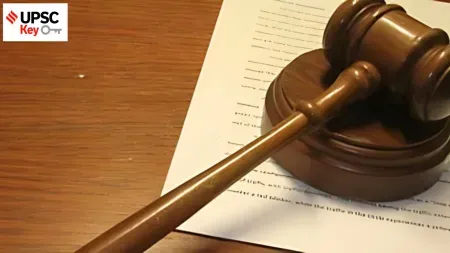The Supreme Court of India is poised to hear a plea from the National Commission for Protection of Child Rights (NCPCR) regarding the legality and appropriateness of allowing Muslim girls to marry soon after attaining puberty. This plea has significant implications for child rights, religious freedoms, and the uniformity of marriage laws in India. Below is a detailed examination of the issue, its background, and the potential consequences of the Supreme Court’s decision.
Background
NCPCR and Its Mandate
The National Commission for Protection of Child Rights (NCPCR) is an Indian governmental commission established in 2007 to protect, promote, and defend child rights as enshrined in the Constitution. The NCPCR’s plea to the Supreme Court addresses a contentious issue at the intersection of child rights and religious practices.
Muslim Personal Law
In India, marriage laws are governed by various personal laws based on religious doctrines. For Muslims, the Muslim Personal Law (Shariat) Application Act, 1937, allows marriage after a girl reaches puberty, typically presumed to be at 15 years of age. This provision contrasts with the Prohibition of Child Marriage Act, 2006, which sets the minimum legal age for marriage at 18 for girls and 21 for boys.
The Issue
Legal Conflict
The NCPCR’s plea highlights the conflict between Muslim personal law and the Prohibition of Child Marriage Act. The central question is whether religious personal laws should take precedence over national laws designed to protect children’s rights. The NCPCR argues that allowing marriages based on puberty undermines child protection laws and violates children’s rights to education, health, and personal development.
Child Rights Concerns
Marrying girls at a young age often leads to adverse outcomes, including early pregnancies, which pose serious health risks. It can also result in the denial of education, limiting future opportunities and perpetuating cycles of poverty and dependency. The NCPCR contends that these marriages are fundamentally incompatible with the objectives of child protection laws.
Table of Contents
Legal and Social Implications
Uniform Civil Code
One broader implication of this plea is the ongoing debate over the Uniform Civil Code (UCC), which seeks to replace personal laws with a common set of laws governing all citizens. Proponents argue that a UCC would ensure equal rights for women and children across all religions, while opponents fear it could erode religious freedoms.
Judicial Precedents
The Supreme Court has previously dealt with issues related to personal laws and child rights. In cases like the Shah Bano case and the Triple Talaq verdict, the Court has shown a willingness to intervene in personal laws to protect individual rights. The decision in this case could set a precedent for future interventions in personal laws to safeguard child rights.
Arguments For and Against the Plea
Arguments in Favor
- Child Protection: Advocates for the plea argue that protecting children from early marriage is paramount and aligns with international conventions on child rights.
- Health and Education: Early marriages often result in early pregnancies, which can be detrimental to the health of young girls. Additionally, they frequently lead to the end of formal education for the girls involved.
- Legal Consistency: Harmonizing marriage laws across all religions would ensure a uniform legal framework, making it easier to enforce child protection laws.
Arguments Against
- Religious Freedom: Opponents argue that personal laws are an expression of religious freedom and that the state should not interfere in religious practices.
- Community Autonomy: Some believe that communities should have the autonomy to govern their personal matters without state intervention.
- Cultural Sensitivity: There are concerns that imposing a uniform age of marriage may not take into account cultural and social contexts, potentially leading to resistance and non-compliance.
Potential Outcomes
Upholding the Plea
If the Supreme Court upholds the NCPCR’s plea, it could mandate that the minimum age of marriage for Muslim girls be aligned with the Prohibition of Child Marriage Act. This would be a significant step towards uniform marriage laws and could enhance child protection measures.
Rejection of the Plea
If the plea is rejected, Muslim personal law would continue to permit marriages post-puberty. This could lead to continued legal ambiguity and potential challenges in enforcing child protection laws uniformly.
Conclusion
The Supreme Court’s decision on the NCPCR’s plea will have far-reaching implications for child rights, religious freedoms, and legal uniformity in India. Balancing the protection of children with respect for religious practices is a complex and sensitive issue. The outcome will likely influence future legislative and judicial approaches to personal laws and could shape the discourse on the Uniform Civil Code. Ultimately, the decision will reflect the Court’s stance on prioritizing child rights in the context of India’s diverse and pluralistic society.








